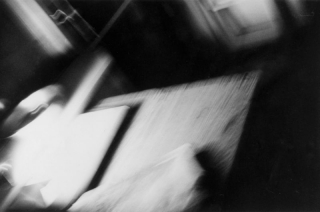Date: 16 March 2016 | Season: Peter Gidal: Flare Out
PETER GIDAL: CLOSE UP
Wednesday 16 March 2016, at 7pm
Newcastle AV Festival at Northern Carter
This rare screening of Peter Gidal’s ‘feature length’ film Close Up (1983) anticipates the publication of Flare Out: Aesthetics 1966–2016, a collection of essays by one of film’s great polemicists. Gidal was a central figure during the formative years of the London Film-Makers’ Co-operative, whose 50th anniversary is being celebrated throughout 2016, and made some its most radical works. His cinema is anti-narrative, against representation and fiercely materialist. In Close Up, Gidal’s political, ultra-leftist practice is augmented by the disembodied voices of Nicaraguan revolutionaries heard of the soundtrack.
Peter Gidal, Close Up, 1983, 70 min
The programme will be introduced by Mark Webber.
PROGRAMME NOTES
PETER GIDAL: CLOSE UP
Wednesday 16 March 2016, at 7pm
Newcastle AV Festival at Northern Carter
CLOSE UP
Peter Gidal, 1983, 16mm, colour, sound, 70 min
“After three years this film, attempting yet again to deal with the problematizing of filmic representation in sound and image: the overtly politically-polemical soundtrack from Nicaragua must not synchronise with, nor must it find a separate continuum of reality away from, the image sequences.
“Without avoiding the interrogation of narrative/anti narrative cinematic structures (the way the images, and the sounds, at times hold/do not hold … or the way they attempt to force a position contradictory to any representational imaginary or homogeneity, of constructed space, time, ego, language, film) an attempted materialist use of sound and image must be at the same time an anti-individualist work.
“Both the sound-contradictions, and the image-contradictions, of subjectivity in this film (and of this film) must be in constant process with/against the political polemic: the film can not allow for a final exclusion of either (neither some pure documentary reality nor some pure formal dialectic). The viewer’s attempts, via her/his/the cultural context of meaning making (political/sexual, narrative) are worked against by the film’s process. The work against the capitalist patriarchal position of narrative, in other words, is (still, and in specificity) the main interest.”
—Peter Gidal, August 1983
Back to top
